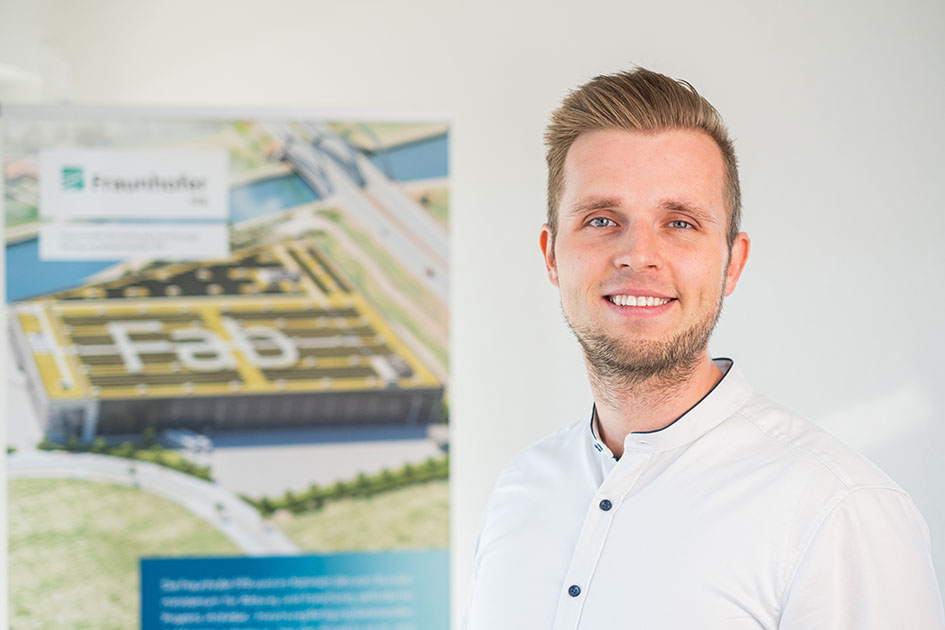Blog article
Excellent battery research
At the 25th graduation ceremony of the Faculty of Electrical Engineering, Information Technology and Physics at TU Braunschweig, 397 graduates of the class of 2022/23 celebrated their graduation - in-cluding Dr Robin Drees, research assistant at Fraunhofer FFB in the »Assembly & Formation« team. For his dissertation on »Model-based Design and Evaluation of Fast-Charging Strategies for Lithium-Ion Battery Formation and Cyclisation« he was honoured with the prestigious Dieter Kind Doctoral Prize of the TU Braunschweig.
Robin Drees has been working as a research assistant at Fraunhofer FFB since August 2023. We spoke to him about his dissertation. In the interview, he gives an insight into his research and his work at Fraunhofer FFB.

What is the focus of your research and what characterizes it?
My dissertation investigates the model-based development of fast-charging strategies for lithium-ion batteries for battery cell production and the battery utilization phase. In order not to negatively affect the safety and performance of the cells, charging (formation) is usually carried out slowly during battery cell production. The long charging times in the forming phase account for a significant proportion of the production costs. Conventional fast charging often leads to a reduction in the service life of the battery during the utilization phase. This is where my topic comes in: using model-based methods, simulations, and experimental investigations, I have developed optimized fast-charging strategies for both battery cell production and the battery usage phase. These optimized fast-charging strategies enable a significant reduction in charging time - without any deterioration in battery performance or a reduced service life. My work also investigates the scalability of the fast-charging strategies between two different cell formats. Here I have uncovered different limiting effects depending on the cell format: I was able to show that pouch cells have a reduced fast charging capability compared to small laboratory button cells. The main causes are a different gas behavior during formation and inhomogeneous local charge states at the electrode edge, which form during the usage phase.
What is the link to your current job and your tasks at Fraunhofer FFB?
At the Fraunhofer FFB, I am building on the research work from my dissertation. I am working on the planning and commissioning of forming systems for large-format battery cells. The focus here is on investigating the scalability of innovative forming methods to different cell formats. In addition to pouch cells, prismatic and cylindrical battery cells will also be manufactured at Fraunhofer FFB in the future. These have a different process sequence during molding. As a result, cell format-specific adaptations are necessary to research fast-charging strategies for these cell formats.
What does science mean to you?
For me, science means the systematic exploration of methods or findings based on ideas, theories or hypotheses.
What motivates you in your work?
What motivates me most about my work is tackling complex challenges and research questions. I also enjoy working in interdisciplinary teams to solve complicated problems together.
Robin Drees was most recently a research assistant, doctoral student and team leader at the elenia Institute for High Voltage Technology and Energy Systems at TU Braunschweig. In addition to his doctorate in engineering, his activities included project management and acquisition, the establishment of a new laboratory for the production, testing and analysis of 3-electrode cells as well as laboratory management at the elenia Institute and the BatteryLabFactory Braunschweig (BLB). From 2012 to 2015, Robin Drees completed his bachelor’s degree in industrial engineering specializing in Physical Technology at Münster University of Applied Sciences. In the following years, he completed two master’s programs in technology-oriented management and electromobility at the TU Braunschweig.
Last modified: